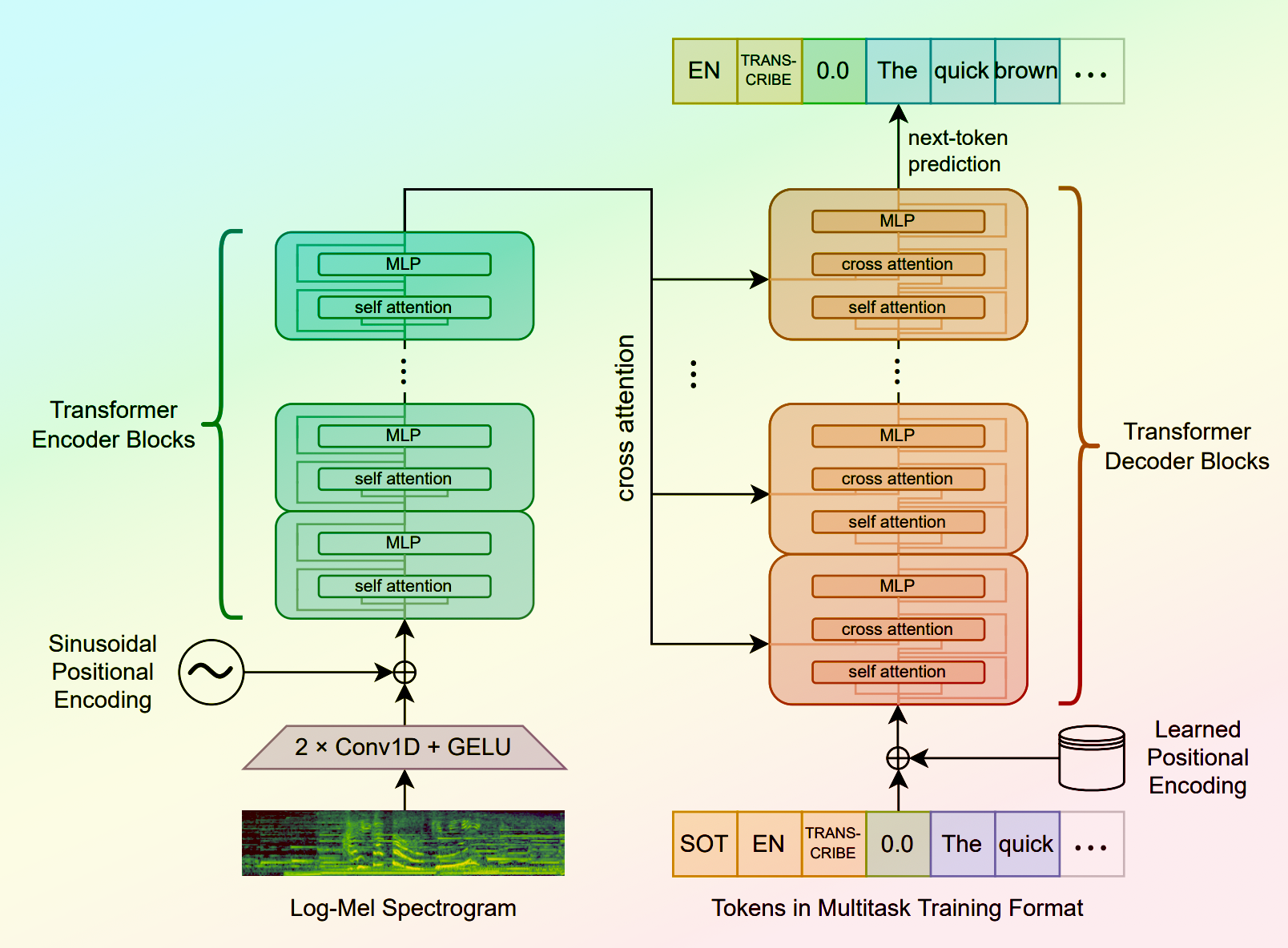whisperx
Maintainer: erium

9.8K

| Property | Value |
|---|---|
| Model Link | View on Replicate |
| API Spec | View on Replicate |
| Github Link | View on Github |
| Paper Link | View on Arxiv |
Create account to get full access
Model overview
WhisperX is an automatic speech recognition (ASR) model that builds upon OpenAI's Whisper model, providing improved timestamp accuracy and speaker diarization capabilities. Developed by Replicate's maintainer erium, WhisperX incorporates forced phoneme alignment and voice activity detection (VAD) to produce transcripts with accurate word-level timestamps. It also includes speaker diarization, which identifies different speakers within the audio.
Compared to similar models like whisper-diarization, whisperx and whisperx, WhisperX offers faster inference speed (up to 70x real-time) and improved accuracy for long-form audio transcription tasks. It is particularly useful for applications that require precise word timing and speaker identification, such as video subtitling, meeting transcription, and audio indexing.
Model inputs and outputs
WhisperX takes an audio file as input and produces a transcript with word-level timestamps and speaker labels. The model supports a variety of input audio formats and can handle multiple languages, with default models provided for languages like English, German, French, and more.
Inputs
- Audio file: The audio file to be transcribed, in a supported format (e.g., WAV, MP3, FLAC).
- Language: The language of the audio file, which is automatically detected if not provided. Supported languages include English, German, French, Spanish, Italian, Japanese, and Chinese, among others.
- Diarization: An optional flag to enable speaker diarization, which will identify and label different speakers in the audio.
Outputs
- Transcript: The transcribed text of the audio, with word-level timestamps and optional speaker labels.
- Alignment information: Details about the alignment of the transcript to the audio, including the start and end times of each word.
- Diarization information: If enabled, the speaker labels for each word in the transcript.
Capabilities
WhisperX excels at transcribing long-form audio with high accuracy and precise word timing. The model's forced alignment and VAD-based preprocessing result in significantly improved timestamp accuracy compared to the original Whisper model, which can be crucial for applications like video subtitling and meeting transcription.
The speaker diarization capabilities of WhisperX allow it to identify different speakers within the audio, making it useful for multi-speaker scenarios, such as interviews or panel discussions. This added functionality can simplify the post-processing and analysis of transcripts, especially in complex audio environments.
What can I use it for?
WhisperX is well-suited for a variety of applications that require accurate speech-to-text transcription, precise word timing, and speaker identification. Some potential use cases include:
- Video subtitling and captioning: The accurate word-level timestamps and speaker labels generated by
WhisperXcan streamline the process of creating subtitles and captions for video content. - Meeting and lecture transcription:
WhisperXcan capture the discussions in meetings, lectures, and webinars, with speaker identification to help organize the transcript. - Audio indexing and search: The detailed transcript and timing information can enable more advanced indexing and search capabilities for audio archives and podcasts.
- Assistive technology: The speaker diarization and word-level timestamps can aid in applications like real-time captioning for the deaf and hard of hearing.
Things to try
One interesting aspect of WhisperX is its ability to handle long-form audio efficiently, thanks to its batched inference and VAD-based preprocessing. This makes it well-suited for transcribing lengthy recordings, such as interviews, podcasts, or webinars, without sacrificing accuracy or speed.
Another key feature to explore is the speaker diarization functionality. By identifying different speakers within the audio, WhisperX can provide valuable insights for applications like meeting transcription, where knowing who said what is crucial for understanding the context and flow of the conversation.
Finally, the model's multilingual capabilities allow you to transcribe audio in a variety of languages, making it a versatile tool for international or diverse audio content. Experimenting with different languages and benchmarking the performance can help you determine the best fit for your specific use case.
This summary was produced with help from an AI and may contain inaccuracies - check out the links to read the original source documents!
Related Models

whisperx

188
whisperx is a speech transcription model developed by researchers at Upmeet. It builds upon OpenAI's Whisper model, adding features like accelerated transcription, word-level timestamps, and speaker diarization. Unlike the original Whisper, whisperx supports batching for faster processing of long-form audio. It also offers several model variants optimized for different hardware setups, including the victor-upmeet/whisperx-a40-large and victor-upmeet/whisperx-a100-80gb models. Model inputs and outputs whisperx takes an audio file as input and generates a transcript with word-level timestamps and optional speaker diarization. It can handle a variety of audio formats and supports language detection and automatic transcription of multiple languages. Inputs Audio File**: The audio file to be transcribed Language**: The ISO code of the language spoken in the audio (optional, can be automatically detected) VAD Onset/Offset**: Parameters for voice activity detection Diarization**: Whether to assign speaker ID labels Alignment**: Whether to align the transcript to get accurate word-level timestamps Speaker Limits**: Minimum and maximum number of speakers for diarization Outputs Detected Language**: The ISO code of the detected language Segments**: The transcribed text, with word-level timestamps and optional speaker IDs Capabilities whisperx provides fast and accurate speech transcription, with the ability to generate word-level timestamps and identify multiple speakers. It outperforms the original Whisper model in terms of transcription speed and timestamp accuracy, making it well-suited for use cases such as video captioning, podcast transcription, and meeting notes generation. What can I use it for? whisperx can be used in a variety of applications that require accurate speech-to-text conversion, such as: Video Captioning**: Generate captions for videos with precise timing and speaker identification. Podcast Transcription**: Automatically transcribe podcasts and audio recordings with timestamps and diarization. Meeting Notes**: Transcribe meetings and discussions, with the ability to attribute statements to individual speakers. Voice Interfaces**: Integrate whisperx into voice-based applications and services for improved accuracy and responsiveness. Things to try Consider experimenting with different model variants of whisperx to find the best fit for your hardware and use case. The victor-upmeet/whisperx model is a good starting point, but the victor-upmeet/whisperx-a40-large and victor-upmeet/whisperx-a100-80gb models may be more suitable if you encounter memory issues when dealing with long audio files or when performing alignment and diarization.
Updated Invalid Date

whisperx

40
whisperx is a Cog implementation of the WhisperX library, which adds batch processing on top of the popular Whisper speech recognition model. This allows for very fast audio transcription compared to the original Whisper model. whisperx is developed and maintained by daanelson. Similar models include whisperx-victor-upmeet, which provides accelerated transcription, word-level timestamps, and diarization with the Whisper large-v3 model, and whisper-diarization-thomasmol, which offers fast audio transcription, speaker diarization, and word-level timestamps. Model inputs and outputs whisperx takes an audio file as input, along with optional parameters to control the batch size, whether to output only the transcribed text or include segment metadata, and whether to print out memory usage information for debugging purposes. Inputs audio**: The audio file to be transcribed batch_size**: The number of audio segments to process in parallel for faster transcription only_text**: A boolean flag to return only the transcribed text, without segment metadata align_output**: A boolean flag to generate word-level timestamps (currently only works for English) debug**: A boolean flag to print out memory usage information Outputs The transcribed text, optionally with segment-level metadata Capabilities whisperx builds on the strong speech recognition capabilities of the Whisper model, providing accelerated transcription through batch processing. This can be particularly useful for transcribing long audio files or processing multiple audio files in parallel. What can I use it for? whisperx can be used for a variety of applications that require fast and accurate speech-to-text transcription, such as podcast production, video captioning, or meeting minutes generation. The ability to process audio in batches and the option to output only the transcribed text can make the model well-suited for high-volume or real-time transcription scenarios. Things to try One interesting aspect of whisperx is the ability to generate word-level timestamps, which can be useful for applications like video editing or language learning. You can experiment with the align_output parameter to see how this feature performs on your audio files. Another thing to try is leveraging the batch processing capabilities of whisperx to transcribe multiple audio files in parallel, which can significantly reduce the overall processing time for large-scale transcription tasks.
Updated Invalid Date

whisperx

13
whisperx is an AI model that provides accelerated audio transcription capabilities by building upon the popular Whisper speech recognition model. Developed by Replicate creator carnifexer, whisperx aims to improve the speed and efficiency of transcribing audio files compared to the original Whisper model. It achieves this through batch processing and other optimizations, while still maintaining the high-quality transcription results that Whisper is known for. whisperx can be a powerful tool for a variety of use cases that require fast and accurate speech-to-text conversion, such as podcast production, video subtitling, and meeting transcription. It is one of several Whisper-based models available on the AIModels.fyi platform, including whisperx by daanelson and whisperx by victor-upmeet. Model inputs and outputs whisperx takes an audio file as input and produces a text transcript as output. The model supports additional options to control the behavior, such as whether to include word-level timing information, and the batch size for parallelizing the transcription process. The output can be in either plain text or a format that includes the transcript along with segment-level metadata. Inputs audio**: The audio file to be transcribed, provided as a URI batch_size**: The number of audio segments to process in parallel, defaulting to 32 align_output**: A boolean flag to control whether word-level timing information is included in the output only_text**: A boolean flag to control whether only the text transcript is returned, or if segment-level metadata is also included Outputs Output**: The transcribed text, either as a plain string or with additional metadata depending on the input options Capabilities whisperx is capable of rapidly transcribing audio files with high accuracy, thanks to the underlying Whisper model. It can handle a wide range of audio content, including speech in multiple languages, and can provide word-level timing information if desired. The batch processing capabilities of whisperx make it particularly well-suited for handling large volumes of audio data, such as podcast episodes or video recordings. What can I use it for? whisperx can be a valuable tool for a variety of applications that require fast and accurate speech-to-text conversion. Some potential use cases include: Podcast production**: Quickly transcribe podcast episodes to generate captions, subtitles, or show notes. Video subtitling**: Add captions to videos by transcribing the audio, potentially with word-level timing information. Meeting transcription**: Transcribe audio recordings of meetings, interviews, or conversations to create searchable text records. Media accessibility**: Improve the accessibility of audio and video content by providing transcripts and captions. Language learning**: Use the transcripts generated by whisperx to help language learners improve their listening comprehension. Things to try One interesting aspect of whisperx is its ability to perform word-level alignment, which can be particularly useful for applications like video subtitling or language learning. By enabling the align_output option, you can generate transcripts that include the start and end times for each word, allowing for precise synchronization with the audio or video. Another feature worth exploring is the batch processing capability of whisperx. By adjusting the batch_size parameter, you can experiment with finding the optimal balance between transcription speed and accuracy for your specific use case. This can be especially helpful when working with large volumes of audio data, as it allows for more efficient processing.
Updated Invalid Date

whisper

15.4K
Whisper is a general-purpose speech recognition model developed by OpenAI. It is capable of converting speech in audio to text, with the ability to translate the text to English if desired. Whisper is based on a large Transformer model trained on a diverse dataset of multilingual and multitask speech recognition data. This allows the model to handle a wide range of accents, background noises, and languages. Similar models like whisper-large-v3, incredibly-fast-whisper, and whisper-diarization offer various optimizations and additional features built on top of the core Whisper model. Model inputs and outputs Whisper takes an audio file as input and outputs a text transcription. The model can also translate the transcription to English if desired. The input audio can be in various formats, and the model supports a range of parameters to fine-tune the transcription, such as temperature, patience, and language. Inputs Audio**: The audio file to be transcribed Model**: The specific version of the Whisper model to use, currently only large-v3 is supported Language**: The language spoken in the audio, or None to perform language detection Translate**: A boolean flag to translate the transcription to English Transcription**: The format for the transcription output, such as "plain text" Initial Prompt**: An optional initial text prompt to provide to the model Suppress Tokens**: A list of token IDs to suppress during sampling Logprob Threshold**: The minimum average log probability threshold for a successful transcription No Speech Threshold**: The threshold for considering a segment as silence Condition on Previous Text**: Whether to provide the previous output as a prompt for the next window Compression Ratio Threshold**: The maximum compression ratio threshold for a successful transcription Temperature Increment on Fallback**: The temperature increase when the decoding fails to meet the specified thresholds Outputs Transcription**: The text transcription of the input audio Language**: The detected language of the audio (if language input is None) Tokens**: The token IDs corresponding to the transcription Timestamp**: The start and end timestamps for each word in the transcription Confidence**: The confidence score for each word in the transcription Capabilities Whisper is a powerful speech recognition model that can handle a wide range of accents, background noises, and languages. The model is capable of accurately transcribing audio and optionally translating the transcription to English. This makes Whisper useful for a variety of applications, such as real-time captioning, meeting transcription, and audio-to-text conversion. What can I use it for? Whisper can be used in various applications that require speech-to-text conversion, such as: Captioning and Subtitling**: Automatically generate captions or subtitles for videos, improving accessibility for viewers. Meeting Transcription**: Transcribe audio recordings of meetings, interviews, or conferences for easy review and sharing. Podcast Transcription**: Convert audio podcasts to text, making the content more searchable and accessible. Language Translation**: Transcribe audio in one language and translate the text to another, enabling cross-language communication. Voice Interfaces**: Integrate Whisper into voice-controlled applications, such as virtual assistants or smart home devices. Things to try One interesting aspect of Whisper is its ability to handle a wide range of languages and accents. You can experiment with the model's performance on audio samples in different languages or with various background noises to see how it handles different real-world scenarios. Additionally, you can explore the impact of the different input parameters, such as temperature, patience, and language detection, on the transcription quality and accuracy.
Updated Invalid Date